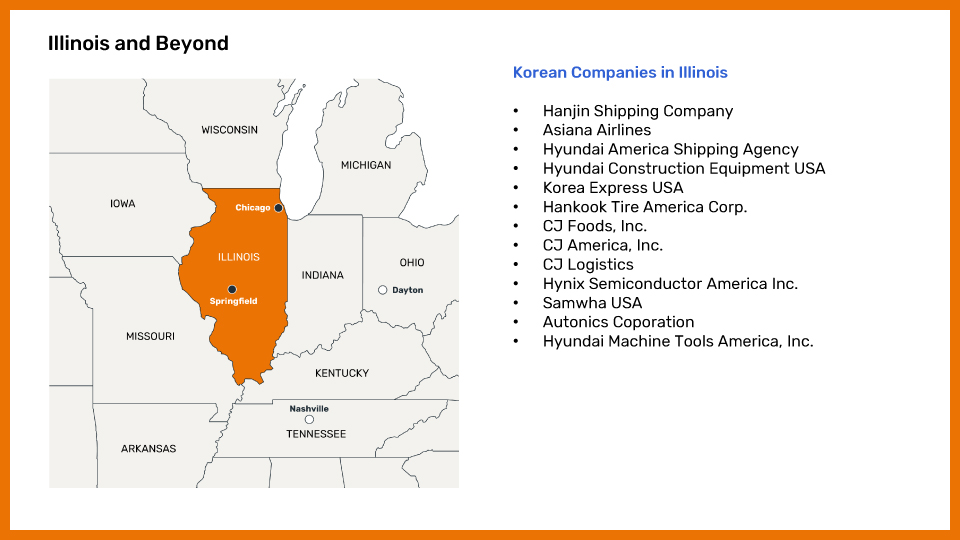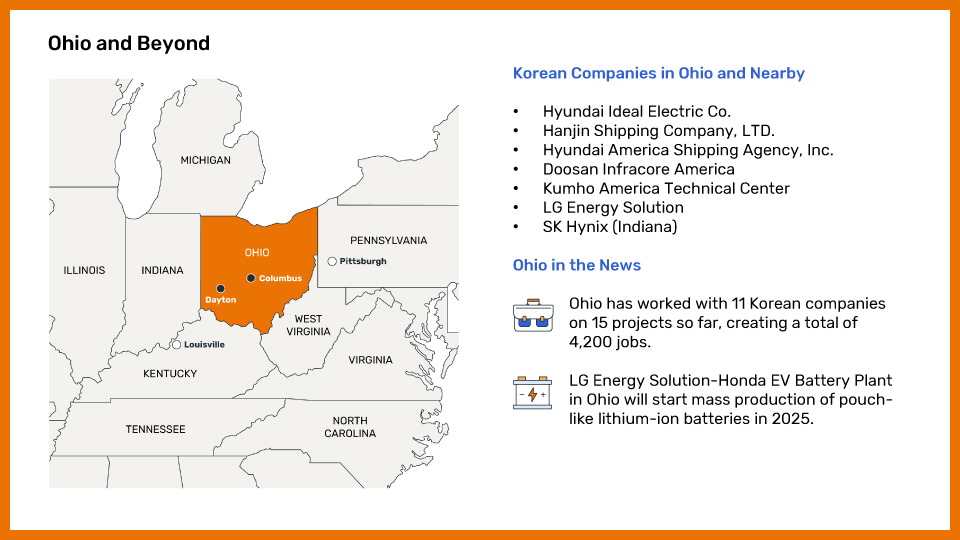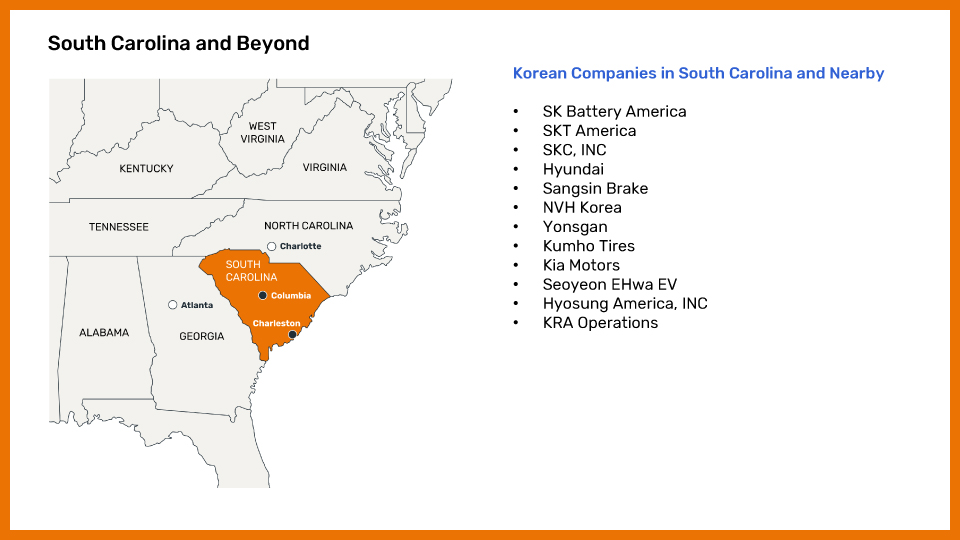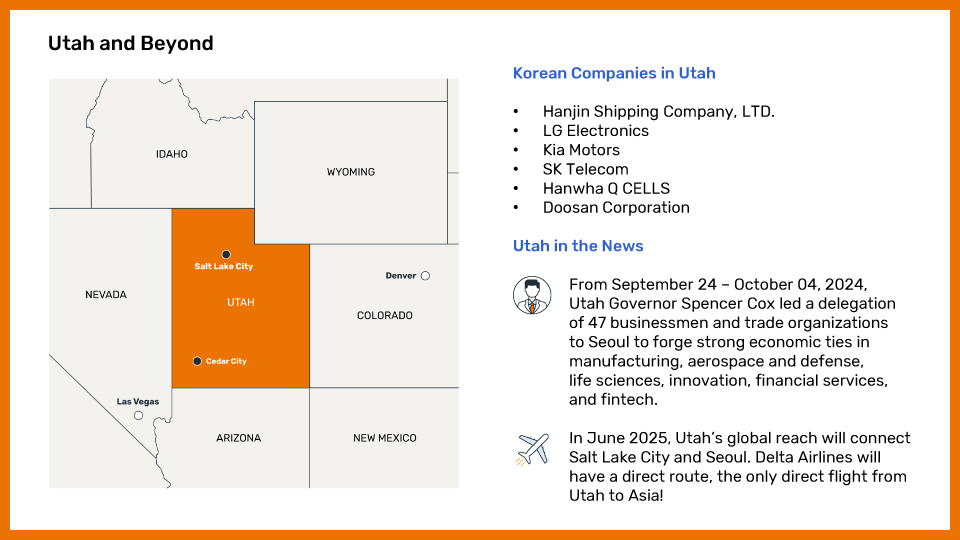South Korea’s vibrant culture and consistent positive job growth make the country a compelling choice for new graduates looking to launch their careers. However, hiring teams for the biggest and most successful Korean companies seek more than just STEM-based technical skills taught in the classroom. Human resources (HR) trends show that many Korean brands value the internship experience, interpersonal skills, and global perspectives that students develop while pursuing an international education. Read on to learn how studying abroad can give you a competitive advantage when looking for employment in Korea.
Technical Skill Development Doesn’t End in the Classroom
Often, in the US, it’s both what you know and who you know, that gets you the job. Many roles emerge from internships after students establish relationships with companies or through industry friends or alums. That’s not necessarily the case in Korea.
“Students who are job searching are finding that it’s not just the hard skills of their major that they need, and it’s not just the degree, either,” said Brittany Chill, assistant director of career services at Shorelight. “We are seeing that students need industry credentials — such as project management and data analysis skills — to show that they are keeping up with industry trends since technology is changing so quickly.”
Technical skills are still paramount for STEM-based students seeking their first role in South Korea. The Korean federal government invests hundreds of millions annually in next-generation technology development, such as artificial intelligence, cyber security, and semiconductor innovations. Students demonstrating industry credentials show they are motivated to stay current and competitive in these and other areas of rapid innovation.
“Now, of course, there’s always going to be multinational companies with cultures who fill positions based on referrals,” said Chill. “But I’ve noticed that in Southeast Asia and many other areas outside the US, it’s truly more relative to the skillset and experience versus who somebody knows.”
Industry Credentials with Optional Practical Training (OPT)
Industry credentials can be certifications, specializations, licenses, and more, depending on the desired position. For entry-level roles, demonstrating that you have related experience can be expressed through class projects, university clubs, internships, and other similar extracurricular activities undertaken while still in school.
International students who finish a program in the US can also take advantage of Optional Practical Training (OPT) opportunities after graduation, which satisfy two important value points for Korean employers: international understanding and career-specific experience.
“Students can get up to three years of OPT in the United States, which often serves as the jumping-off point for finding employment back at home, in Korea, or anywhere else in the world,” said Chill. “Since many post-grads are looking at multinational organizations with a US presence, OPT becomes an incredibly important piece of the experience puzzle. It shows these companies that a candidate is global and knows how to navigate the US market side of things.”
Learn more about OPT opportunities in the United States >
Making the Right Career Choice Is Essential in Korea
South Koreans have the sixth-longest work week of all countries in the Organization for Economic Cooperation and Development, clocking 1,872 hours per year — 73 more hours than the US, 372 more than France, and 529 more than Germany annually.
Many studies correlate occupational stress with depression and burnout among Korean workers — which is why choosing a best-suited career is so important, and also why many companies and organizations in Korea are looking for applicants with skillsets that extend outside technical prowess, often called power skills or soft skills.
“Korean employers are more accepting of that power skill and emotional intelligence piece than before,” said Dr. Torrie Kalm, an industrial organizational psychology specialist. “Certainly, the technical piece is still important, but employers are looking at the holistic person because they are becoming aware of how these non-technical skills can increase productivity and reduce absenteeism within their companies.”
Korean Employers Make a Strong Case for Power Skills
According to a recent Economist Impact survey, 58% of Korean employers say self-management is a crucial hiring priority. In addition, data shows other power skills, such as interpersonal communication, adaptability, resilience, self-motivation, and mindfulness, can reduce the corporate costs of depression and burnout. Employers in Korea face annual costs of $181 per employee for absenteeism — related to burnout — and $2,114 in presenteeism costs — such as coming to work sick.
“I’m seeing a push towards emotional intelligence — that ‘connect and collaborate’ piece — being more prominent now than ever,” said Dr. Kalm. “Your college degree’s obviously very important, but more and more job descriptions now are asking for social skills. Can you communicate? Can you collaborate? Do you have power skills? Can you advocate for yourself when you have to?”
US Universities Offer the Best of Both Worlds
The United States educational system prioritizes industry credentials and power skills as essential for undergraduate and graduate-level career development. Experiential learning and hands-on pedagogy, unparalleled internship and OPT opportunities, and countless clubs and extracurriculars give students at US universities more access to what Korean employers are looking for on entry-level resumes and CVs.
“One huge piece is successfully working or interning in the US — even if the intention is overall to go back to their home country — which shows all the interpersonal skills the student has developed, and that they can bring a US perspective to the workplace,” said Chill. “Since many organizations in Korea have a US presence, that becomes an incredibly important piece of experience.”
Many US universities are situated in or near some of the most important global technology centers, such as University of the Pacific, which is close to Silicon Valley. Other US universities have pre-established relationships with multinational Korean corporations like Samsung. Additionally, many of the top programs known globally for technical skill development are located in the US and focus on developing well-rounded graduates, such as the computer information systems program at Adelphi University or the computer science program at the University of Utah.
“Students that come to a school through Shorelight have access to career programs that help them develop both sets of skills,” said Chill. “Our global citizenship and design thinking courses are examples of human-centric programs intended to build things like resilience, leadership, teamwork, and empathy.”
Study in the US, Work for a Korean Company
Check out US states with both Shorelight universities and Korean corporate offices. Earn a prestigious US university degree while networking, making key professional contacts, and gaining hands-on experience at global Korean organizations.
Illinois

Ohio

South Carolina

Utah

US Universities Invest in Industrial Credentials Development
Many US universities invest millions of dollars in developing laboratories, think tanks, and collaborative technology spaces for students to push the boundaries of their respective disciplines and to bolster collaboration and communication skills while working on technical projects. For example:
The University of South Carolina encourages students to collaborate to build computer systems, networks, and applications at the Center for Integrative and Experiential Learning.
The engineering program at the University of Illinois Chicago offers guaranteed paid internships to students with a 3.2 GPA — the perfect way to engage hard and soft skillsets.
Shorelight’s Career Services provide coaching and mentorship, training and certificates, and virtual internship opportunities so students can develop attractive skillsets for employers in Korea and globally.
Here are some other attributes that Korean employers look for in their employees that international students studying in the United States have opportunities to develop.
English and Korean Language Fluency and a Global Perspective
While Korean employers often cite applicants’ Korean-language skills as a core hiring metric when considering employees from different countries, many companies with an international footprint see English-speaking fluency as an attractive skill in a global workplace.
“So many job descriptions are looking for bilingual people,” said Dr. Kalm. “But beyond that, here we do promote communication in general. We get students who come in from different countries, who struggle to advocate for their needs or understand how to work across cultures.”
According to Dr. Kalm, the University of Dayton, ranked #136 among the US’s best universities (U.S. News & World Report), has a strong international student acclimation program that helps students communicate and advocate for themselves in and outside the classroom.
International Education Can Help You Land a Job in South Korea
It takes guts to study internationally — to leave one’s comfort zone and move across the globe alone. However, studying internationally in the United States pays dividends for those looking to start their careers in Korea, where technical competence gets you in the door, and power skills set you apart from other job seekers with similar credentials.
“Having the ability to go outside of your comfort zone and be vulnerable and ask for help ... at an international university,” said Dr. Kalm, “teaches [students] not only to be self-advocates, but to go get what they want, and employers see that.”
Check out Shorelight Career Services >
